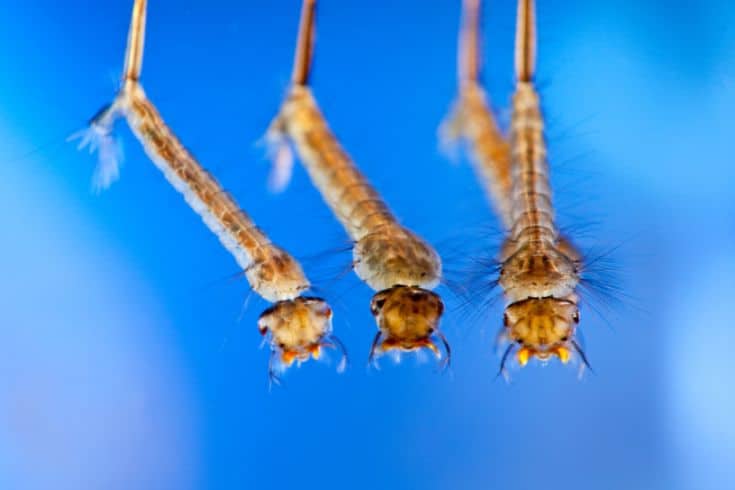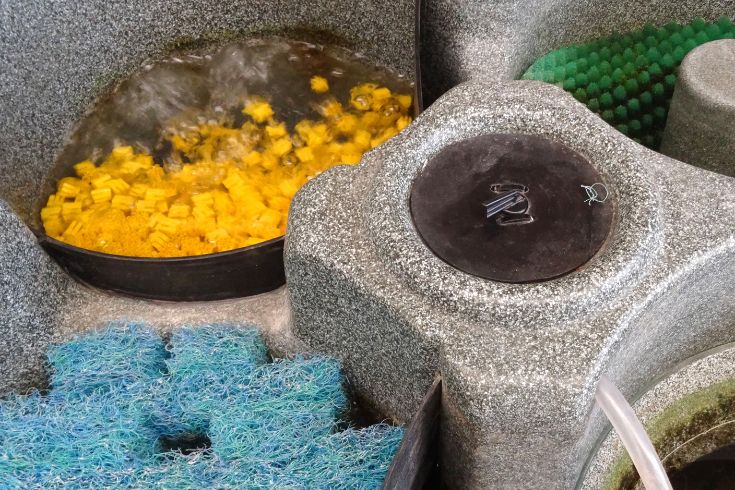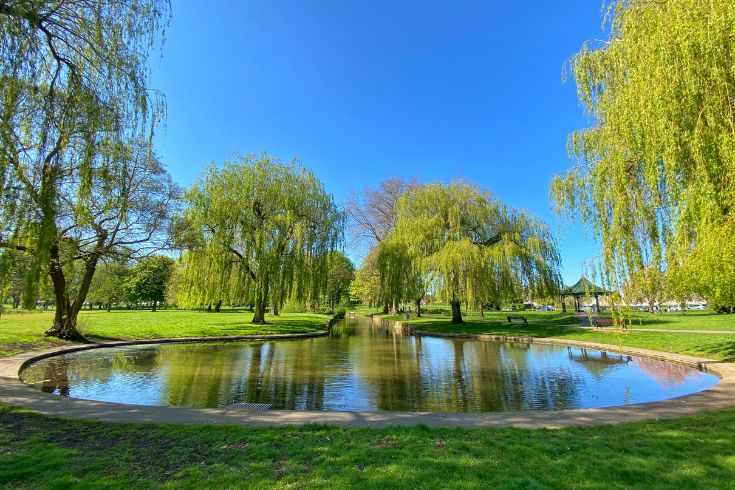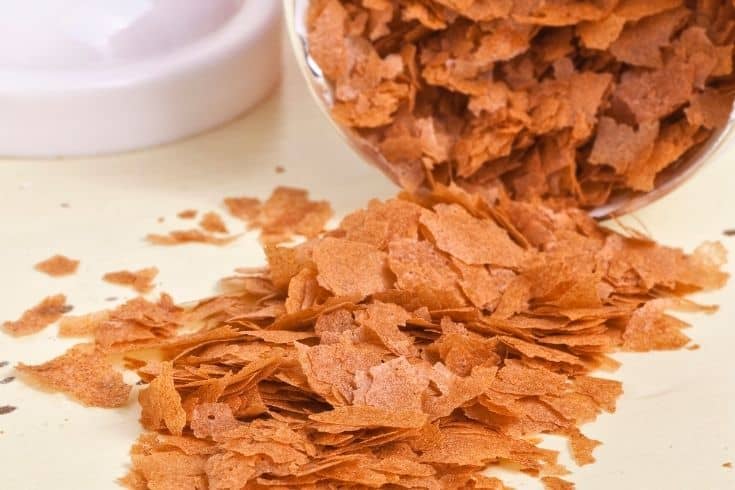As an experienced aquarist, I am often asked if guppies can live in a pond. The short answer is yes, guppies can live in outdoor ponds, provided that certain conditions are met. These freshwater fish are popular for their vibrant colors, active personalities, and ease of care.
In this article, we will explore the potential of guppies to survive and thrive in pond environments. We will look at the water requirements, temperature preferences, and other factors influencing their ability to inhabit a pond.
With this information, you can decide whether to keep your pet guppies in a pond.
Can Guppies Live In A Pond?
Yes, guppies can live in ponds. As tropical fish, most guppies find a pond environment beneficial, as it closely resembles the vastness of their natural habitats. However, you should keep in mind that guppies are a little more delicate than other types of pond fish, such as koi, and will require more maintenance to ensure a healthy environment.
Benefits of Keeping Guppies Outdoors
Given that it’s a lot more common to keep guppies indoors, why might some owners choose to keep them outdoors? Well, turns out there are actually some great benefits to keeping guppies outdoors.
Keeps Mosquito Population Under Control
If you live in a tropical climate, you might be fully aware of the risks mosquito-borne illnesses can pose. And if you happen to already have a pond in your backyard, it may feel like that risk is multiplied. Guppies, however, are known to be voracious eaters of mosquito larvae and their presence in ponds can help keep their population under control. This is one of the key reasons why people opt to keep guppies in ponds.

Although it is unrealistic to expect a pond full of guppies to completely eradicate mosquitoes, their presence can help keep the population under control and reduce the risk of diseases. Think of it as a numbers game – the fewer larvae available for mosquitoes to feed on, the fewer mosquitoes you will have in your backyard. This then lowers your odds of getting bitten or contracting any illness from them
Offers More Space For Guppies
Like it or not, guppies are prolific breeders that multiply at a rapid rate, within a matter of months. Though this makes breeding guppies a rewarding endeavor, it also means that overcrowding in an aquarium is a real possibility. You’ll find yourself buying new aquariums or having to get rid of some of your guppies if you don’t plan ahead. Both options are not ideal.
Outdoor ponds, on the other hand, offer guppies plenty of room. This is especially true if you have a large pond with plenty of plants, rocks, and other structures for them to hide in. This means that there’s enough space for your guppies to thrive without having to worry about overcrowding or having too many babies in one tank.
Provides A Natural Environment For Guppies To Thrive
Having an outdoor pond also allows guppies more access to natural elements like sunshine, fresh air and clean water – all of which are essential components for their health and well-being. These natural elements can help them stay healthy by providing the nutrients they need from food sources such as algae or small insects that live in the pond environment.
Additionally, since ponds are exposed to sunlight, guppies get the benefit of UVA and UVB rays, which can help prevent diseases like ich, fungus and bacterial infections. Sunlight also encourages algal growth in ponds, providing a natural food source for your guppies.
Given the many benefits of keeping guppies in outdoor ponds, it is easy to see why doing so can be a great option for guppy owners. If you’re ready to set up an outdoor pond for your guppies, our next section explains how to get started.
Setting Up A Guppy Pond
Choose The Right Location
The first step in setting up a guppy pond is to choose the right location. Not only should you look for a wide enough space (think at least 8 feet in diameter), but it should also be away from direct sunlight and heavy winds. You’ll want to make sure the location of your pond is sheltered and secure, as guppies are sensitive to extreme temperatures, predator animals, and strong currents.
Next comes preparing the area for construction. Clear any large rocks or debris that might affect the shape of your pond’s walls when you start building them. If there is an existing water source near where you plan on constructing your outdoor pond (for example, a stream or lake), try to keep it at least 2-3 meters away so as not to disturb its natural habitat with runoff from yours during heavy rains or floods.
Excavate and Construct Your Pond
Once you’ve decided on a spot for your guppy pond, go ahead and begin digging! The depth will depend largely on what type of fish species you plan on keeping in it – most experts recommend having ponds between 1-2 feet deep if they’re only intended for raising guppies – but feel free to add more layers depending on how much space/diversity you hope to create within this aquatic ecosystem!
When finished with the excavation work, you can begin laying down a layer of sand/soil at the bottom. This will help to create an even surface for your pond and also serve as a protective barrier from any sharp objects that may have been left behind in earlier excavation work. Once this is done, start adding rocks or bricks around the perimeter of the pond – this provides stability for the pond.
Ensure Pond Equipment is Installed
Once the pond is built, it’s important that you install some basic equipment such as a filter and aerator, to keep your guppies healthy. These pieces of equipment are essential for maintaining clean water and keeping oxygen levels at the right level, respectively.

A heater is also worth considering if you live in an area with cold winters. This will help maintain a comfortable temperature for your guppies and provide them with the best environment possible.
Let Your Pond Cycle
Is all your equipment up and running? Now it’s time to add some plants and fish! Before adding your guppies, let your new pond settle in for a few weeks before introducing any guppies. This allows enough time for bacteria and other organisms to establish themselves so that when you do introduce the fish they have an established habitat to live in.
As long as all of these steps are followed carefully, your guppies should have a great time living in their new outdoor pond!
Factors to Consider
Setting up a pond isn’t the be-all and end-all when it comes to guppy care. You’ll also need to consider these other factors:
Pond Size
There are two main types of ponds that guppies typically inhabit: small, semi-permanent ponds and larger, permanent ponds. Smaller ponds resemble large, above-ground containers, while larger ponds are usually more permanent, built-in structures that can hold water indefinitely. Generally speaking, the latter is more suitable for guppies due to the larger volume of water.

Despite this general rule, small ponds can also be suitable, as long as you manage your guppy population appropriately. These little guys are prolific breeders, and a pair of adult guppies can easily become over a dozen in a matter of months. Therefore, before you start stocking your pond, make sure that you can accommodate the potential population growth.
At the heart of the matter is the size of the pond. If you plan to keep guppies in a pond, make sure it is large enough to accommodate their needs and growth. It’s much better to err on the side of providing a habitat that’s too large – it just means your guppies will have ample space to swim. You don’t want guppy diseases to take hold in an overcrowded environment.
Water Temperature
A pond heater is one of the most important pieces of equipment for a guppy pond, regardless of whether you live in a tropical climate or a cool region. This is because water heaters do more than just heat the water; they also help regulate the water temperature and keep it at a consistent level. In general, the ideal temperature range for guppies is between 72 and 82 degrees Fahrenheit.
Even guppies living in warmer climates benefit from having a water heater, because outdoor ponds are subject to temperature fluctuations. A sudden drop in temperature can cause stress, illness, and even death in guppies, so it’s important to ensure that the water temperature is stable. In some cases, a pond heater may be the only way to keep the water consistently warm.
Because ponds are rather large, the cost of keeping them heated can be rather high. Not only do you need to purchase a heater, but you also need to consider the energy costs of running it. That said, the benefits of having a heated pond far outweigh the costs. The whole point of keeping guppies in a pond is to enjoy their vibrant colors and active nature, and this can only be done if the water temperature is just right.
Feeding
A common misconception about guppies is that they can survive off of the insects and other organisms found in the pond. While it’s true that these hardy fish have a voracious appetite for mosquito larvae, they still require a balanced diet in order to stay healthy. Therefore, it is important to provide them with proper nutrition in order to maximize their growth and development.

One of the best ways to keep your hungry adult guppies satisfied is to use a floating food pellet. These pellets are designed to slowly release food over an extended period of time, ensuring that your guppies always have access to food. Additionally, they are also fortified with additional vitamins and minerals to ensure that your guppies are getting the nutrition they need.
Like many live-bearing fish from the tropics, guppies are omnivores that will consume a variety of food sources. In addition to the food pellets, you can also feed them a variety of frozen and live foods, such as bloodworms, brine shrimp, and vegetables. A varied diet will ensure that your guppies are getting all the nutrients and energy they need to stay healthy and active.
Tankmates
When keeping guppies in a pond, it is important to choose the right tankmates. Guppies are generally peaceful fish, but they should be kept with fish that are of the same size and temperament. Some good examples include the white cloud minnow, danios, mollies, and other live-bearers. Most of these fish are more than happy to munch on mosquito larvae, keeping pest levels under control.
On the other hand, it is important to avoid predatory fish such as bass, large catfish, and pufferfish. These fish can easily overpower and eat your guppies, so it is best to avoid them. Additionally, you will also want to avoid aggressive fish such as cichlids, which can be too territorial and aggressive for your guppies to coexist with.
Regardless of the tankmates you opt for, you should provide tons of hiding spaces in your pond. Typically, these consist of strategically placed aquatic plants – there’s tons of space in a pond for plants to spread out and propagate, creating the aquascape of your dreams. As a bonus? Your guppies might even nibble on these plants as a yummy snack. Talk about killing two birds with one stone!
Filtration
Having a reliable filtration system is essential if you want to keep your guppy pond clean and healthy. The filter should be powerful enough to handle the amount of water in the pond and should be designed specifically for ponds. Be prepared to splurge on a quality filter – this will save you the headache of having to replace it more often.
There are several types of filtration systems available. Mechanical filtration uses a device such as a skimmer to remove floating debris from the water. Biological filtration utilizes beneficial bacteria to break down ammonia and other harmful chemicals, while chemical filtration uses media such as activated charcoal to remove toxins from the water.
Once you’ve chosen your ideal pond filter, remember to routinely clean and maintain your system. This should include cleaning or replacing the filter media, checking for clogs, and removing any debris from the pond. Though doing so may feel like a hassle, it will help keep your fish healthy and your pond water clean. Most importantly? It’ll keep your water conditions ideal for your fish!
Final Thoughts
To answer our question, yes, guppies can live in outdoor ponds! However, you should be sure to meet their needs and give them a safe environment. With proper care, your guppies will absolutely thrive in their new home.
We hope this article taught you everything you need to know about keeping guppies in outdoor ponds. If you found this article helpful, please share it with your friends and family! And if you’ve ever kept guppies in a pond, we’d love to learn all about your experience. Thanks for reading, and good luck!
